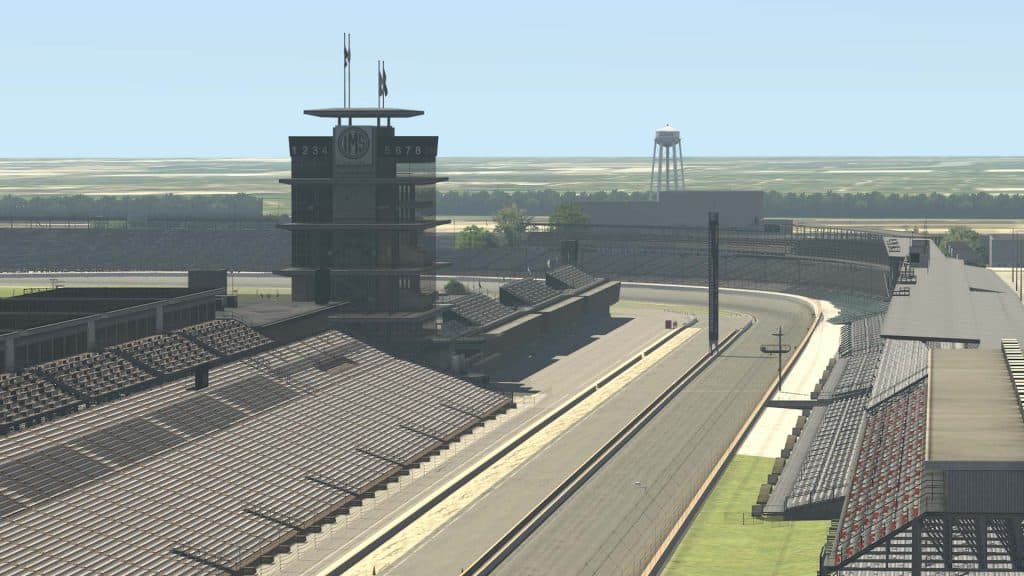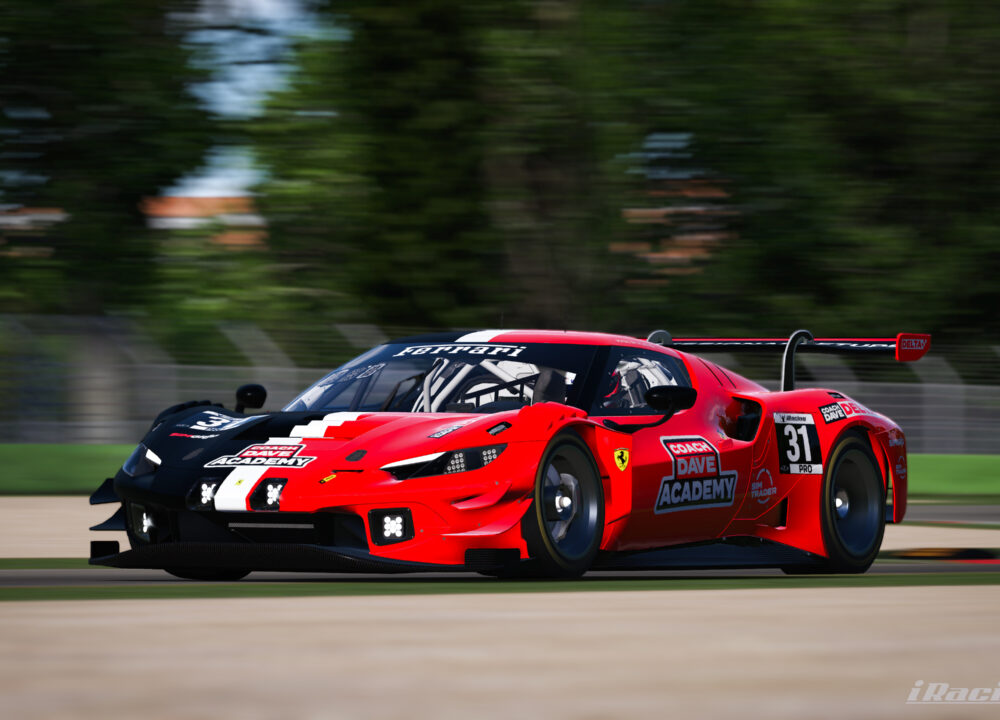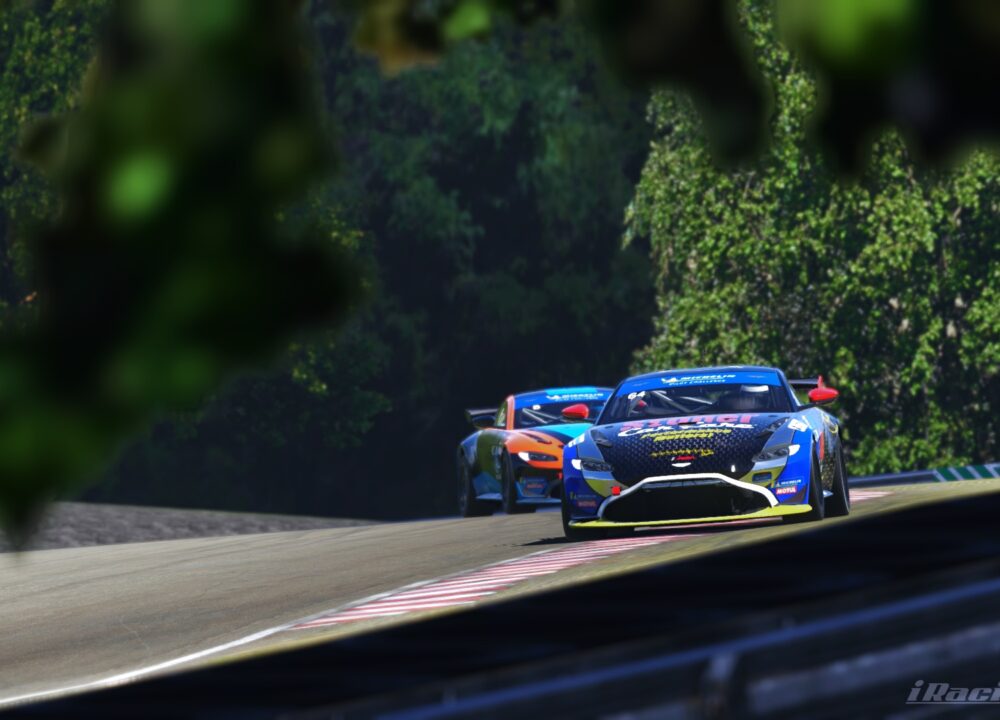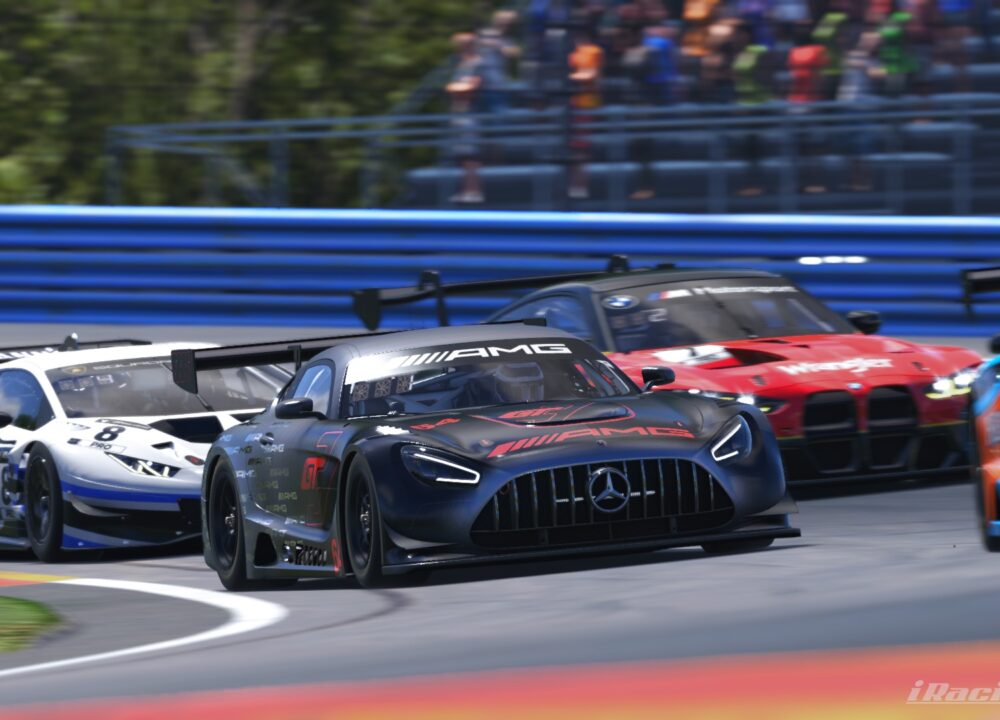The Indianapolis Motor Speedway is a critical part of the 2024 special events calendar on iRacing, replicating the real-life event that’s scheduled as the penultimate round of the IMSA WeatherTech SportsCar Championship.
This guide covers everything you need about the Indianapolis 6 Hours in iRacing, including the event schedule, race format, cars and strategy tips.
When Is The Indianapolis 6 Hours Held?
The 2024 race will be held on the 13th, 14th and 15th of September. There are four starting times to accommodate drivers in all time zones: Friday at 10 PM GMT and Saturday/Sunday at 8 AM GMT, 12 PM GMT, and 4 PM GMT.
- The late Friday fixture is ideal for teams in Asia and Australia as the race commences on Saturday morning.
- The early morning slot on Saturday is not very popular, making it an optimal choice for newcomers and teams with drivers in different time zones because most prefer the noon GMT broadcast race.
- The fixture on Saturday at noon GMT has the highest participation and a live broadcast of the top split.
- For teams in North and South America, the most convenient slot is on Saturday afternoon GMT, as the entire race comfortably fits within the day’s time frame.
You can participate in multiple time slots if you retire from an earlier race due to a technical problem or a crash.
What Is The Indianapolis Motor Speedway?
The Indianapolis Motor Speedway, located in Indiana, USA, is one of the most iconic and historic racing venues worldwide. It is primarily known for hosting the Indianapolis 500, one of the oldest and most prestigious automobile races globally, alongside the Brickyard 400 NASCAR event. IndyCar also uses the 3.925 km (2.439 miles) road course, which is the layout IMSA sticks to for their 6-hour event.
This short and challenging layout includes two long straights and three sections of corners. Each low-speed section flows smoothly together and requires precision with trajectory and speed, making it a challenging venue where one small mistake can snowball as the lap continues. The road course incorporates a portion of the infield of the oval track, adding complexity and diversity to the circuit layout.

iRacing uses the so-called “IndyCar Grand Prix” circuit for this race, which, if you’re a regular to the rest of the sim racing world, is a bit different compared to the configuration in Assetto Corsa Competizione, which features a longer first sector and less sharp turn after the back straight.
- Do you need help maximising your pace at the Indianapolis Grand Prix Circuit? Make sure to check out Coach Dave Academy’s in-depth Lap Guides now.
What Licence Is Needed To Race?
You need a minimum C-level road racing license to participate in the Indianapolis 6 Hours, and you must register as a team that includes at least two drivers. iRacing will assign your team a split according to your average sports car racing iRating.
The event features an eight-minute qualifying session to determine the starting grid for each split. The qualifying session allows drivers to record two fast laps, just like every other regular race in iRacing. Only one driver from each team can qualify, but the driver who starts the race can be different from the qualifying driver. The event then begins with a rolling start.
The Cars
The Indianapolis 6 hours is a multiclass event with three available classes: GTP, LMP2 and GT3. The GT3 class only includes cars used in the real IMSA championship, so heritage cars such as the Ford GT and McLaren MP4-12C are not legible to race.
GTP Class
GTP is the prototype class designed for the Le Mans Daytona h (LMDh) regulations used since the 2023 season of the IMSA SportsCar Championship. LMDh vehicles have a maximum power output of 670 horsepower with the engine and hybrid system, and they are the fastest class in the Indianapolis 6 Hours.
iRacing has four available cars in this category: Acura, BMW, Porsche and Cadillac. All have some strengths and weaknesses as outlined in our in-depth guides that are linked below, although BoP changes are possible ahead of the main event that can adjust the outright pace of each car.
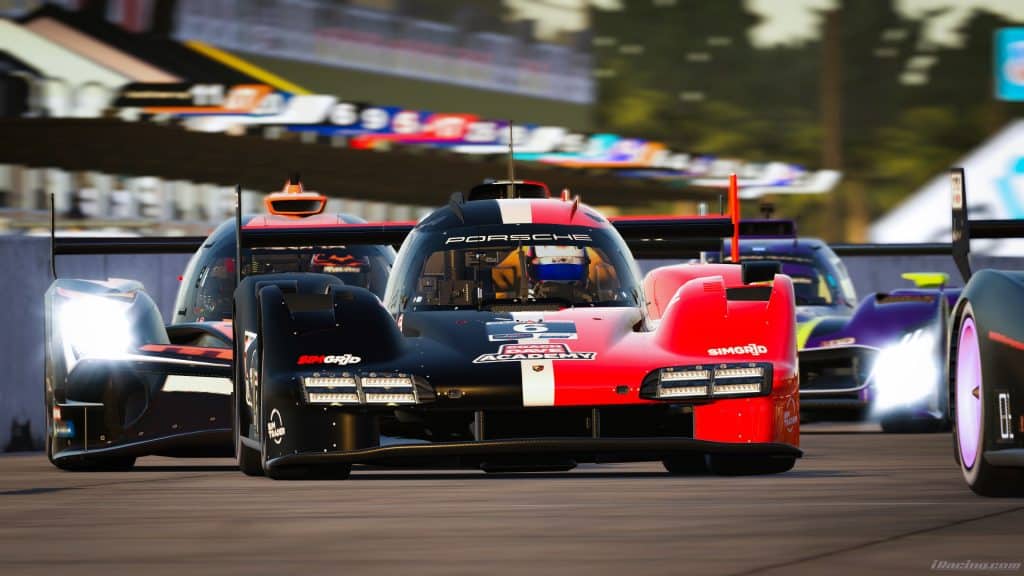
| Car | Engine |
| Cadillac V-Series R | Mid-engine 5.5-litre V8 Naturally aspirated |
| Acura ARX-06 | Mid-engine 2.4-litre V6 Turbocharged |
| BMW M Hybrid V8 | Mid-engine 4.0-litre V8 Turbocharged |
| Porsche 963 | Mid-engine 4.5-litre V8 Turbocharged |
LMP2 Class
LMP2 is the single-make class that uses the Dallara P217, an icon of endurance racing. Regarding performance, the LMP2 car is a nice middle ground between GTP and GT3: still plenty of downforce and horsepower, but no hassle with managing the hybrid system.
Overall, the LMP2 is much easier to handle in the wet than a GTP, which could prove an advantage come to the 6 Hours in September.
| Car | Engine |
| Dallara P217 | Mid-engine 4.2-litre V8 Naturally aspirated |
GT3 Class
The GT3 roster includes eight cars that represent different manufacturers. Usually, two or three cars are considered favourites for the event, even with performance adjusted by the custom balance of performance rules.

- Make sure you check out the Coach Dave Delta app to get the most out of your car of choice
| Car | Engine |
| Ford Mustang GT3 | 5.4-liter V8 Front-engined Naturally-aspirated |
| Chevrolet Corvette Z06 GT3.R | 5.5-liter V8 Mid-engined Naturally-aspirated |
| Lamborghini Huracan GT3 Evo | Mid-engine 5.2-litre V10 Naturally aspirated |
| Mercedes-AMG GT3 2020 | Front-engine 6.3-litre V8 Naturally aspirated |
| Audi R8 LMS GT3 Evo II | Mid-engine 5.2-litre V10 Naturally aspirated |
| Porsche 911 GT3 R (992) | Rear-engine 4.2-litre flat-six Naturally aspirated |
| BMW M4 GT3 | Front-engine 3.0-litre straight-six Turbocharged |
| Ferrari 296 GT3 | Mid-engine 2.9-litre V6 Turbocharged |
Keep A Level Head In Traffic
The Indianapolis Grand Prix Circuit is a difficult venue to handle on your own due to its entourage of 90-degree corners and the constant need to set up a turn far in advance. During the multiclass Indianapolis 6 Hours, traffic will only further compound your difficulties.
As a GTP driver, patience is of paramount importance and one must accept that passing is tough on the Grand Prix Circuit. The only two totally clean passing points are turn one and turn seven, both of which come after long straights.
Turn 12 is another relatively easy place to make a pass, but factor in that GT3 or LMP2 cars will likely cross from right to left on corner entry. The close proximity of the oval layout’s walls and the track’s banking also pose a challenge. On the whole, overtaking elsewhere is tough, so act with caution and avoid risky, low-percentage moves on lower-class vehicles.
As a GT3 or LMP2 driver, you may often find your corner-to-corner flow, which is critical to your success, being interrupted by GTP class cars. Staying calm and level-headed is consequently vital when being lapped, ensuring you can keep up a strong pace and remain predictable in your moves.
- If you need help refining your driving style, why not book a coaching session with one of our professional drivers?
Race Strategy
Fuel consumption will be one of the strategic aspects of this race. Aim to regulate fuel usage to sustain at least one hour per stint to avoid the short stop for fuel at the end, provided there are no incidents or repairs. You can also gain time during pit stops if you maintain lower fuel consumption while keeping up with other cars.
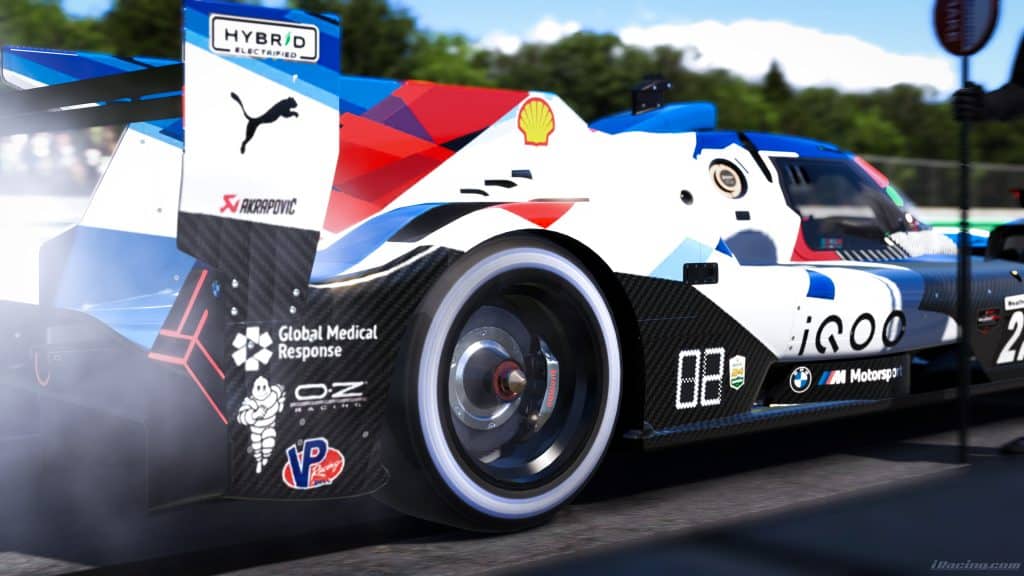
Weather is another variable you should keep in mind. You should preserve your tyres more when the track is hotter because tyre wear is higher and implementing tire-saving techniques can improve consistency and race pace within a single stint if you use an aggressive setup. Of course, with the possibility of rain now enabled, you’ve got to keep an extra eye on the skies.
- Remember, using setups prepared by Coach Dave Academy means you’ll have one less variable to worry about when you take to the track!
Summary
Participating in the Indianapolis 6-Hour race offers the opportunity to test skills on one of the most legendary tracks in motorsport history. The combination of the iconic oval and the infield road course presents a unique and demanding challenge that requires precision, strategy, and adaptability, making it an enticing prospect if you want to push your limits.

